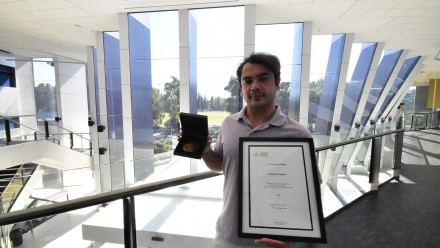Molecular regulation of tissue regulatory T cell differentiation
Abstract
Regulatory T cells (Tregs) are critically important for the suppression of inflammation and the maintenance of systemic immune homeostasis. Most Tregs develop in the thymus and migrate to peripheral tissues where they undergo further functional maturation. This process is marked by the acquisition of an effector-like phenotype and the upregulation of molecules critical for immune suppression, including IL-10. Fully suppressive Tregs, also known as effector Tregs (eTregs), constitute only a small fraction of Tregs in lymphoid tissues; however, the vast majority of Tregs in non-lymphoid tissues are of the effector type.
Our studies have uncovered tissue-specific mechanisms that control the differentiation of eTregs in the periphery. This includes cytokines such as IL-33 and transcription factors such as IRF4 and Blimp1. IL-33 in particular is essential for the development and homeostasis of adipose tissue Tregs, which play a critical role in maintaining systemic glucose metabolism and preventing metabolic disease. Unexpectedly, our data also uncover remarkable sex-specific differences in adipose tissue Tregs that were imprinted by the tissue environment in a sex hormone-dependent manner. Sex hormones regulated the differentiation of unique stromal cell populations, which promote the local expansion of Tregs and the induction of a transcriptional program controlled by transcription factor Blimp1. Overall our findings reveal a novel multi-layered feedback circuit mediated by stromal cells and Tregs that is regulated by sex hormones and inflammation.
About the Speaker
The research of the Kallies laboratory focuses on the molecular control of CD8+ cytotoxic and regulatory T-cell differentiation with a focus on populations residing in non-lymphoid tissue, including healthy tissues and tumors.
Axel Kallies completed his PhD in Berlin, Germany, working on the role of transcription factor IRF8 in the development of macrophages. He then started his postdoctoral fellowship in the group of Stephen Nutt at the Walter and Eliza Hall Institute (WEHI), Melbourne, Australia, where he worked on the control of plasma cell differentiation and established the central role of Blimp1 in this process. In 2010 he started his laboratory at the WEHI and began his research focused on T-cell biology. During this time, his lab focussed on transcriptional regulators in the differentiation of conventional and regulatory T cells. In 2017, he was recruited to the University of Melbourne. His team studies the molecular control of lymphocyte differentiation in response to antigen with a particular focus on T cells residing in non-lymphoid tissues. His group published several key studies in leading journals of the field, including Science, Immunity and Nature Immunology, which detail the roles of transcription factors and cytokines in differentiation, clonal expansion and cellular metabolism of lymphocytes.












